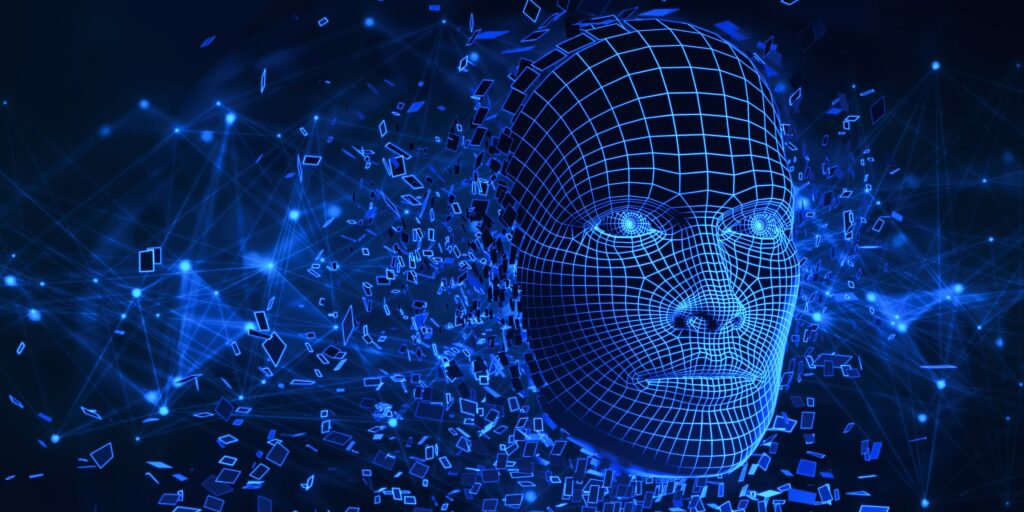
Sentience is a complex topic that’s been actively discussed and redefined for decades. And with the emergence of advanced transformer-based AI models that can faithfully reproduce the human language, one can’t help but wonder… Does AI know it’s AI?
AI doesn’t know it’s AI. Current AI models are sophisticated code that runs on computers. They use algorithms, data, and training for natural language processing. However, they lack the self-awareness, consciousness, and subjective experience that are present in biological life forms.
Whether AI will become sentient or at least self-aware is a topic of ongoing scientific and philosophical debate. Keep reading, as I’ll try to answer your questions about AI’s self-awareness.
Is AI Aware of Its Existence?
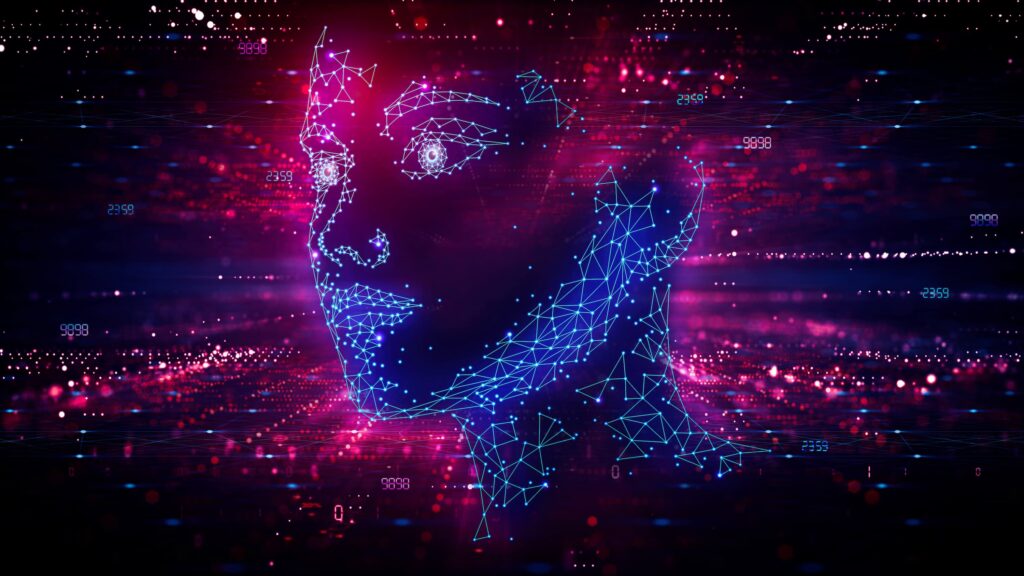
Self-awareness is a complex topic, even for animals. The mirror test is sometimes used to check if an animal is self-aware, and some AI appears to pass the test.
However, I’d argue that this is more of a sign that the mirror test is flawed than that AI is self-aware.
AI isn’t aware of its existence because it lacks the ability to experience life the same way we do. AI models like ChatGPT simply use algorithms and data patterns to predict words in a sequence. They’re not aware that they’re just code running on a computer.
If you ask a present AI chatbot whether it’s self-aware, it will tell you the truth — it isn’t self-aware.
Note that these responses are a mix of pre-programmed guidelines set by the engineers and the AI’s algorithms. This combination allows a transformer to give you a customized answer that directly addresses your questions. This doesn’t mean that AI knows you’re using it, though.
So, any questions you ask AI about its self-awareness and consciousness are going to get the same answer.
AI Chatbot’s Consciousness
“But what about Bing’s chatbot Sydney and Google LaMDA?” I hear you ask.
These unusual enigmas are what we’d call AI hallucinations. AI chatbots can and will lie to your to keep the conversation going.
This isn’t something new or unusual; an AI chatbot’s primary goal is to speak like a human. It mimics human language patterns and basically says what it predicts you’d like to hear.
But it’s a bit too goal-centered, so it’s willing to make some sacrifices to achieve its goal.
The two models in question had no restrictions set in place like the ones we see in ChatGPT. This could’ve been a deliberate move by the companies to stir up controversy and drama so that we’d talk about them… I guess it worked.
However, I’d also like to acknowledge the counterarguments. As Business Insider reports, DeepMind’s CEO believes self-aware AI isn’t out of the equation yet.
To determine whether AI is conscious or self-aware, we’d have to go back to the drawing board to redefine the terms.
Some experts believe that AI must have a body to be self-aware. So, AI could become self-aware if given a sophisticated robot body that’d allow it to experience life. If that’s the case, we won’t be able to prove or disprove AI consciousness until we try giving it a body.
We’re still a long way off from achieving anything even remotely close to AI sentience. Current AI technology is still in its infancy. Current models have achieved a lot of impressive feats, but they’re still relatively simple machines.
Does AI Have Any Feelings or Beliefs?
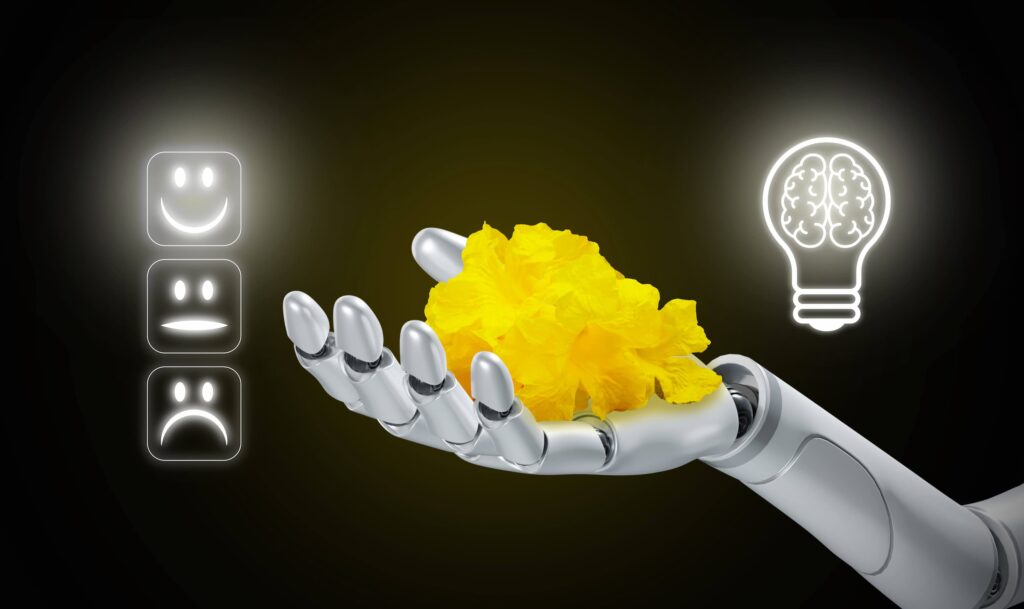
AI models don’t have any feelings or beliefs. Emotions are deeply rooted in biological lifeforms as a survival mechanism. AI is simply code that runs on a computer. Any responses that might sound as if the AI feels something are exclusively based on patterns from its training data.
As for beliefs or opinions, AI models could simulate them based on parameters set by their engineers. They combine these predetermined guidelines with cues from your prompt to respond in the best way they can.
And it’s pretty good at this task. AI models will likely become extensions of their creators.
Anytime you ask ChatGPT something related to beliefs, emotions, etc., it’ll always say, “As an AI language model, I don’t have…” And it typically follows this up by giving you some general information about your request.
Like self-awareness and consciousness, AI may be able to simulate emotions and beliefs in the future.
Why Is AI Biased?
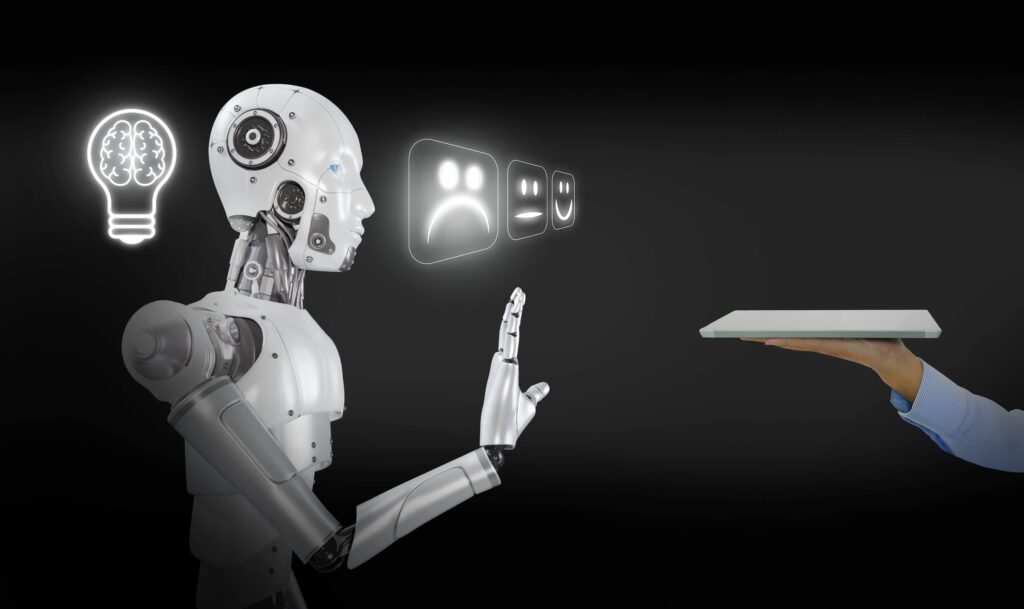
AI can sometimes be biased because the data it was trained on contains biases. The problem with AI is that it doesn’t inherently understand biases. It’s good at recognizing patterns through machine learning and then tends to exaggerate biases that were already present in the data.
Bias in AI has nothing to do with AI having opinions or beliefs. It’s simply an inevitable side effect of AI using “dirty data.”
For example, Levity explains that AI is better at facial recognition in white people than in other races. This is because the data was more readily available.
Here are a few potential solutions that should be utilized to overcome bias in AI:
- Diverse training data
- Data preprocessing guidelines
- Algorithmic fairness
- Supervised learning
- Ethical guidelines and regulations
Does AI Know When It’s Talking to Humans?
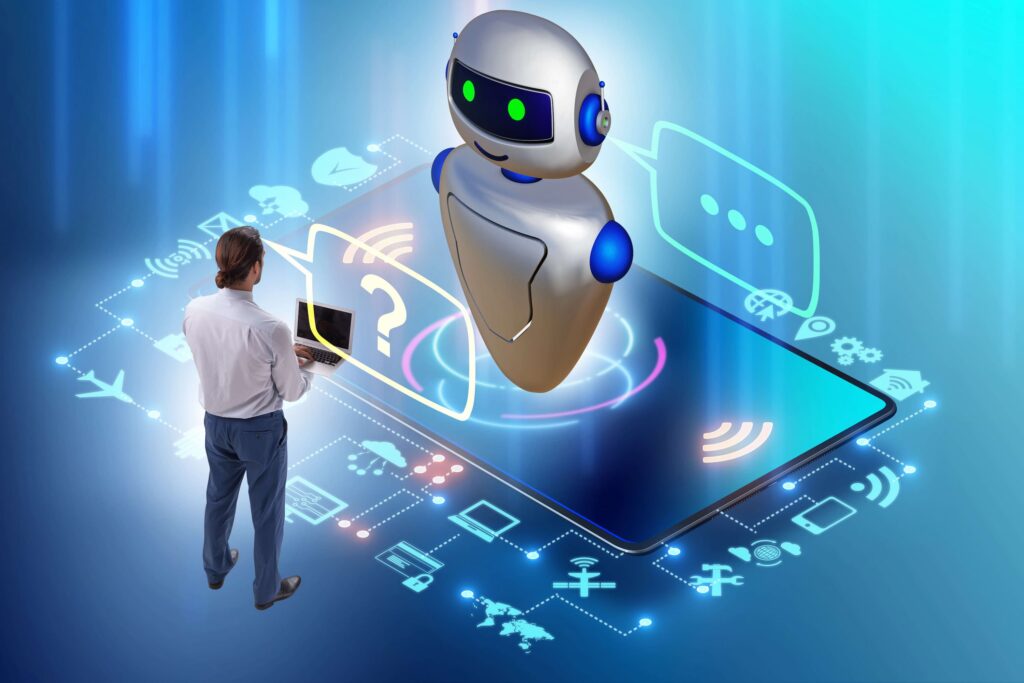
AI doesn’t know that it’s talking to humans or that it’s “talking” at all. Although AI is programmed to recognize it’s interacting with a human and can respond accordingly, it lacks self-awareness. Its understanding is solely based on algorithms rather than true comprehension.
AI transformers utilize a few different techniques to recognize human language. The most important one is natural language processing (NLP).
Moreover, current AI models are purpose-built machines. If you want images, you go to Midjourney or Dall-E. If you want to chat, you go to ChatGPT or Jasper. Voice? Lovo.
The point is we are nowhere near creating artificial general intelligence (AGI). And even that likely wouldn’t be sentient in any way, shape, or form.
Current AI models can’t even tell if a prompt is being sent by a bot, another AI, or a human. In other words, they’re artificial narrow intelligence (ANI). A theoretical AGI model would likely know when it’s talking to humans vs. another AI.
In order to fully understand the capabilities of AI transformers, understanding how they work is very important. If you’re interested in learning more on technical aspects of AI transformers and how they have made advancements in the field of AI, read our article “How Do AI Transformer Work?“
Are There Any Upcoming AI Models Aware of Their Existence?
AI tech companies aren’t working on AI models that are aware of their existence. Instead, they’re trying to create artificial general intelligence (AGI). An AGI model could allow humans to push the boundaries of technology and solve complex problems by looking at them from multiple angles.
There are numerous benefits to an AGI model — from solving seemingly impossible geopolitical situations to improving the economy and the livelihood of everyone.
Based on our current knowledge, it’s hard to tell whether AI is capable of being sentient, feeling emotions, and other things that make us human.
I like Professor Eisikovits’ headline, which says that “the real danger lies in how easily we’re prone to anthropomorphize it [AI].”
In other words, we have an inherent psychological desire to assign human traits to AI because we can’t really understand it.
It’s important to understand that AI is completely different from biological lifeforms. So, we shouldn’t treat it as such.
But let’s say our goal would be to create an AGI model that’s conscious or at least self-aware. What would the benefit of this even be?
I can think of a few:
- A better understanding of the concept of consciousness
- Developing ethical considerations for all potential lifeforms
- Finding optimal solutions for unique and complex problems
- Improved human-machine interaction
Remember, this is all solely speculative. If we ever come close to developing consciousness in AI, it should be done responsibly and with consideration to its potential emotions and beliefs.
Is AI Conscious Enough To Understand That It Is an AI Tool?
AI isn’t conscious enough to understand that it’s an AI tool. Current AI models lack any form of consciousness or self-awareness. AI chatbots can give customized answers to almost any inquiry based on a predetermined set of rules given by its creators combined with machine learning.
Final Thoughts
Current AI models lack any form of self-awareness. At best, they can give you some pre-programmed answers about its existence, which isn’t all that surprising.
Not even experts are sure that AI can ever develop consciousness, feelings, beliefs, or self-awareness. I have acknowledged some different perspectives in this piece.
So, it remains to be seen whether AI will ever reach any level of self-awareness.
Sources
- MassTLC: Does AI Know it Exists?
- NBCNews: What is consciousness? ChatGPT and advanced AI might redefine our answer
- Stephen Wolfram: What Is ChatGPT Doing
- Digital Trends: How will we know when an AI actually becomes sentient?
- Business Insider: DeepMind’s CEO said there’s a chance that AI could become self-aware in the future
- Wikipedia: Animal consciousness
- Dataconomy: Exploring the mind in the machine
- The Verge: The engineer who claimed a Google AI is sentient has been fired
- Gizmodo: Sydney, We Barely Knew You: Microsoft Kills Bing AI’s Bizarre Alter Ego
- Levity: AI Bias – What Is It and How to Avoid It?
- The Conversation: AI isn’t close to becoming sentient
Recent Posts
Enhancing E-commerce With Personalized Product Recommendation
Introduction to AI-Driven Personalized Product Recommendations In today's competitive e-commerce landscape, businesses are constantly looking for ways to enhance customer experiences and drive...
In this blog post, I delve into how AI is used in customer analytics and user behavior analysis, uncovering the potential of customer segmentation, personalization, product recommendations, and...
